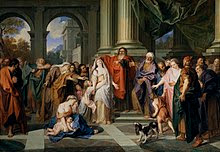Ihedioha v Uzodinma (2020) "Not Only Must Justice Be Done; It Must Also Be Seen To Be Done."
It is not because Ihedioha’s application has no merit, but that if they overturn their decision, it “would open the floodgate of similar applications”.
The Justices would rather allow an innocent man to die than overturn their earlier decision, which “would open the floodgate of similar applications”.
But the Supreme Court can fine lawyers who brought frivolous applications to the Court like they fined the Lawyers in the Bayelsa case.
Remarkably, Ihedioha’s lawyers were not fined even though their application was declined. That shows that Ihedioha’s case had more merit than Bayelsa’s.
However, the US Supreme Court has overturned more than 200 of its own decisions. - CNN The US is home to democracy and the rule of law. If the US Supreme Court deemed it necessary to overturn more than 200 of its own decisions, it means that a Supreme Court can truly overturn its decision.
Moreover, in R v Sussex Justices, ex parte McCarthy ([1924] 1 KB 256, [1923] All ER Rep 233), “in a landmark and far-reaching judgment”, Lord Hewart CJ stated that “it is of fundamental importance that justice should not only be done but should manifestly and undoubtedly be seen to be done.”
“The ruling is derived from the principle of natural justice and has been followed throughout the world in countries that use the English legal system.” - Wikipedia
Even in the Pinochet case, the House of Lords overturned its own decision on the grounds of Lord Hoffman's conflict of interest. That conflict of interest tainted their decision. And because justice “should manifestly and undoubtedly be seen to be done” they overturned their decision.
The House Of Lords was the highest Court in the United Kingdom until the establishment of the UK Supreme Court in 2009. Nigeria uses the English legal system, hence, why didn’t the Supreme Court follow the precedent set in this matter while entertaining Ihedioha’s application?
Anyway, “Justice Chima Centus Nweze, in a dissenting tone, maintained that the Supreme Court had the inherent power to revisit its judgment, and asked his colleagues to do so in the interest of justice.
Justice Nweze stated that Uzodinma misled the court to accept the results of the election from his angle. Uzodinma presented his case without the record of accredited voters.
And there were over 129,340 votes over accredited voters. The judgment that declared Uzodinma winner was entered in error.” - TheGuardian
In the Pinochet case, the House of Lords overturned their decision when they became aware of Lord Hoffman’s conflict of interest, which they weren’t aware of before their ruling.
The Supreme Court of Nigeria should also have overturned its decision in Ihedioha’s case when it became apparent that their judgment for Uzodinma was apparently entered in error, as enumerated by Justice Nweze.
Lord Hewart CJ's statement that justice “should manifestly and undoubtedly be seen to be done” means that justice tainted with doubts is justice denied.
In dismissing Ihedioha’s application, considering that there were 129,340 votes over accredited voters, together with other anomalies; the Supreme Court of Nigeria cannot say that justice was done; manifestly and undoubtedly seen to be done in Ihedioha v Uzodinma (2020).
Opinion Of Doz Ideas
~liberating minds



